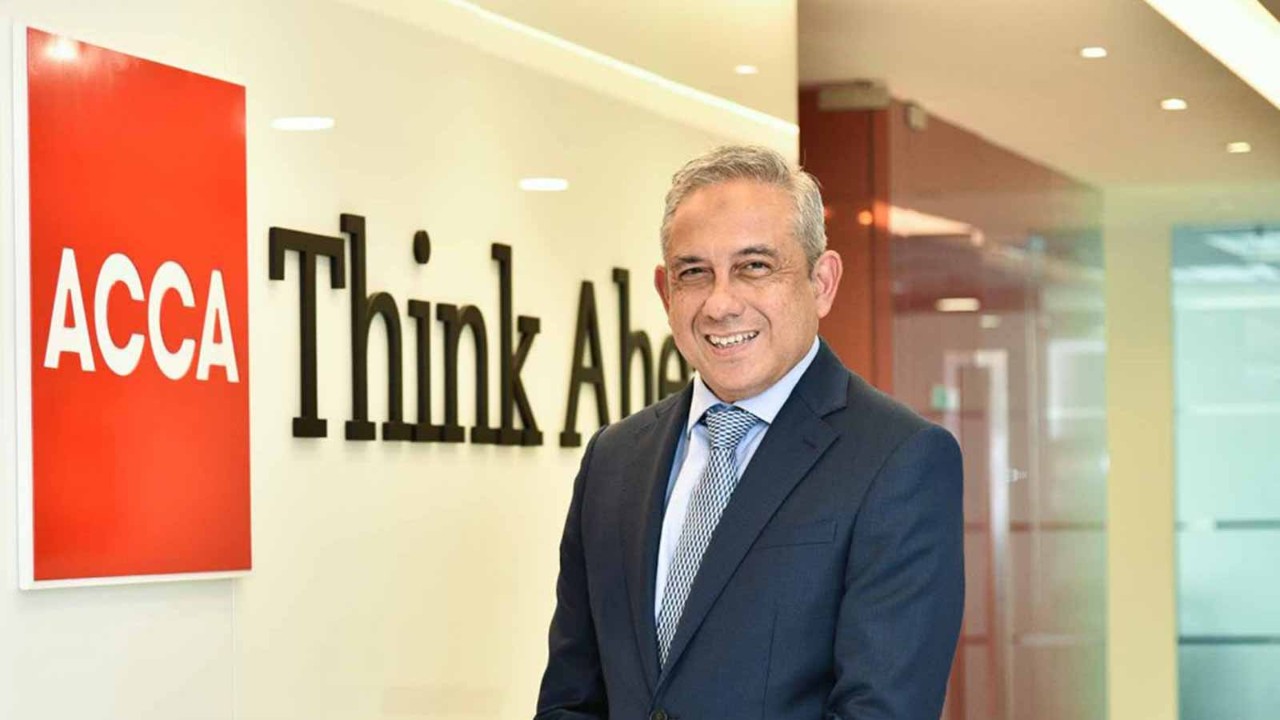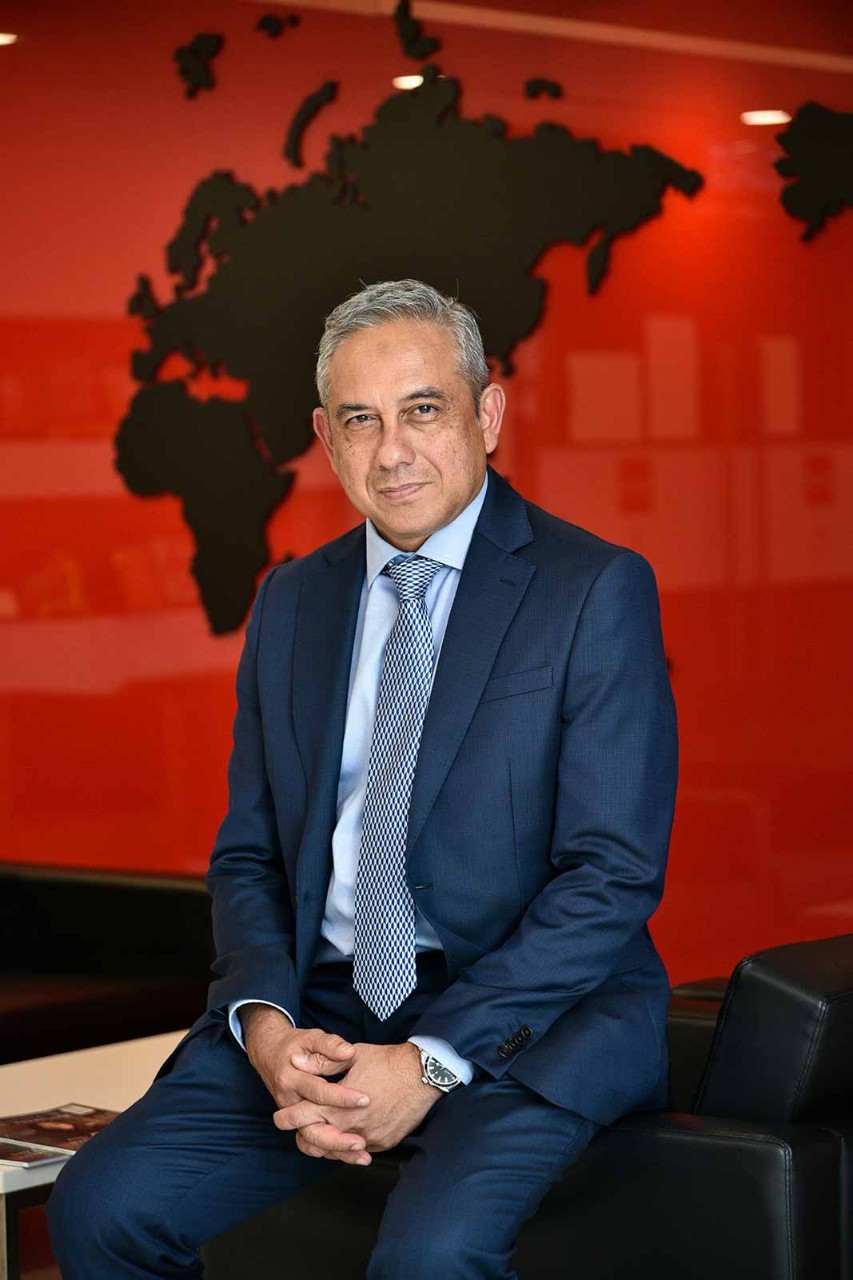
‘How do we ensure that the accountancy profession stays relevant and for parents to continue supporting accounting as a profession for their children?’ asks Datuk Bazlan Osman, chair of the ACCA Malaysia Advisory Committee and the newly elected president of the Malaysian Institute of Accountants (MIA). Achieving this is, he says, among his priorities.
Established under the Accountants Act 1967, the MIA is a statutory body mandated to regulate and develop Malaysia's accountancy sector. Bazlan joins at a key moment, with proposed amendments to the legislation currently at the draft stage. These will, he says, ensure that regulation and oversight of the profession are in line with current market and global standards.
'We want those in the profession to carry out their duties with ethics and integrity'
CV
Datuk Bazlan Osman FCCA is president of the Malaysian Institute of Accountants and chair of the ACCA Malaysia Advisory Committee. He sits on the boards of several public listed companies, including Fima Corporation, Bursa Malaysia, Bank Islam Malaysia, Syarikat Takaful Malaysia Keluarga and Glomac, as well as being a director of Malaysia Professional Accountancy Centre.
Bazlan began his career as an auditor in 1986 with Hanafiah Raslan & Mohamad, before joining the Sime Darby Group in 1989, holding various finance positions in Kuala Lumpur, Melaka and Singapore. He had a one-year stint as manager, accounting at American Express Malaysia, moving to Kumpulan FIMA as senior vice president in 1994.
In 2001, he moved to Celcom Malaysia as senior vice president, corporate finance and treasury, becoming CFO in 2002. From 2005, he served as group CFO at Telekom Malaysia until his promotion to deputy group CEO in 2017, and was acting group CEO from June-November 2018.
‘The accountancy profession has long since moved from bookkeeping to assurance, advisory and consultancy services, so the amendments are aimed at ensuring that accountants are provided with the necessary training and professional development,' says Bazlan.
‘At the same time, the regulation of the profession is crucial so that when people look at MIA members and members of professional bodies, the trust is there. We want those in the profession – whether they are in commerce, public practice, academia or public sector – to carry out their duties with ethics and integrity, to adhere to the highest professional standards in place and work in compliance with the rules and regulations.'
Greater engagement
Those principles of ethics and integrity are, of course, mirrored in the work of the ACCA Malaysia Advisory Committee. There, one of Bazlan’s priorities is to advance the ACCA Qualification as the preferred choice of parents, students and employers. This calls for greater engagement with various stakeholders.
‘With the public sector, for example, we work with the Accountant General’s Department and the National Audit Department in promoting ACCA as the preferred professional qualification for civil servants wishing to undertake professional qualifications,’ he says.
It is equally important, he believes, that the profession keep abreast of the latest technological trends, especially those related to IR4.0: the country's commitment to embracing the digital economy. Crucial to this is ensuring that accountancy training is in sync with the new technological demands of the market. That technology-related areas such as artificial intelligence, big data, cybersecurity and data analytics are now embedded in the accountancy syllabus is, Bazlan adds, a positive step in the right direction.
‘Parents need to know that these elements are now part of the accounting syllabus, and employers need to see the value of qualified professional accountants,’ he says. ‘Companies need accounting professionals to understand financials and communicate them to the stakeholders. This complements the role of the accountant in ensuring the integrity of the accounting system and the data that is fed into it; we do not want a 'garbage-in, garbage-out' kind of scenario.'
Value focused
After a three-decade career in finance and business, Bazlan retired in 2019. Apart from his commitments with MIA and ACCA, he is also a director of the Malaysia Professional Accountancy Centre (MyPAC) – an entity dedicated to encouraging ethnic Malays and other indigenous groups to enter the profession – and sits on the board of several public listed companies. Outside of the corporate world, Bazlan concedes that he’s finally getting the time to catch up with the family and travel, as well as tending to a small orchard.
'People are crucial to any organisation. They need to understand why we change in order to create value'

Many of Bazlan's career milestones came during his time in the telecommunications industry, first with Celcom and then at Telekom Malaysia (TM). As a member of the senior management team at Celcom following its merger with TM’s cellular arm in 2002, he supported the networks' integration.
In 2005, he moved to TM as group CFO, later becoming deputy group CEO and acting group CEO. Over a 14-year period, he played a part in many of the company's key developments, including the demerger of TM’s cellular and fixed-line businesses in 2007 and the rollout of its high-speed fibre-optic internet business a year later. At both Celcom and TM, the constant thread was, Bazlan says, the focus on value creation for both stakeholders and customers, and ensuring business sustainability – not least during the companies' merger.
Bazlan was responsible for many of the group’s financial restructuring activities – some groundbreaking. The group’s 2008 Islamic Sale and Leaseback transaction, which involved the issuance of RM1bn of Islamic asset-backed sukuk Ijarah, was at the time the largest property securitisation deal in Malaysia. ‘It was through this asset securitisation that we were able to refinance the capital expenditure for the rollout of TM’s high-speed internet,’ he recalls.
EQ vs IQ
Throughout his career, Bazlan has received numerous accolades, such as being included in Global Telecoms Business's 50 CFOs To Watch list in 2015 and being named best CFO in Malaysia at Alpha Southeast Asia's 2016 Institutional Investor Corporate Awards. He was also recognised for excellence in financial planning and analysis at the CFO Innovation Awards in 2016.
One of the biggest takeaways from Bazlan's career has been the importance of gaining buy-in from key stakeholders, including employees. ‘People are crucial to any organisation. They need to understand why we change in order to create value, which will also benefit them,' he says. 'It is important that they believe and support new ways of doing things.'
Bazlan also believes that emotional intelligence should be a prerequisite for accounting professionals. 'You can be very intelligent but if you are not ethical then it’s a slippery slope. At the end of the day, stakeholders are the ones who will suffer from these unethical practices. This kind of EQ comes from your upbringing, the way you deal with people and the community.'
He urges accountants to value independence and integrity by not having a financial stake in the businesses they advise. ‘If you are financially independent, it is easier to move on and not compromise your integrity. That would be my top advice: to always be ethical and uphold integrity.’





